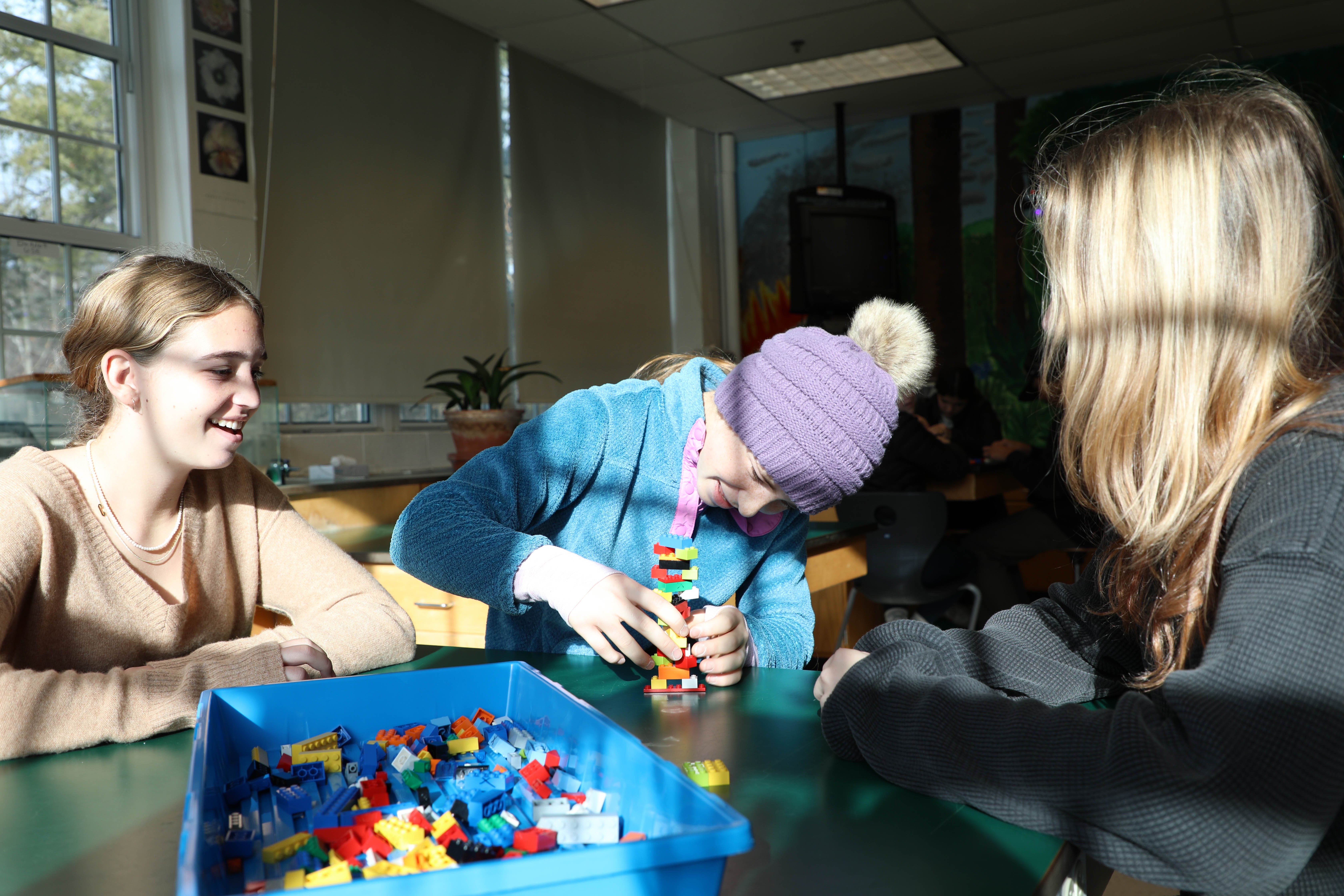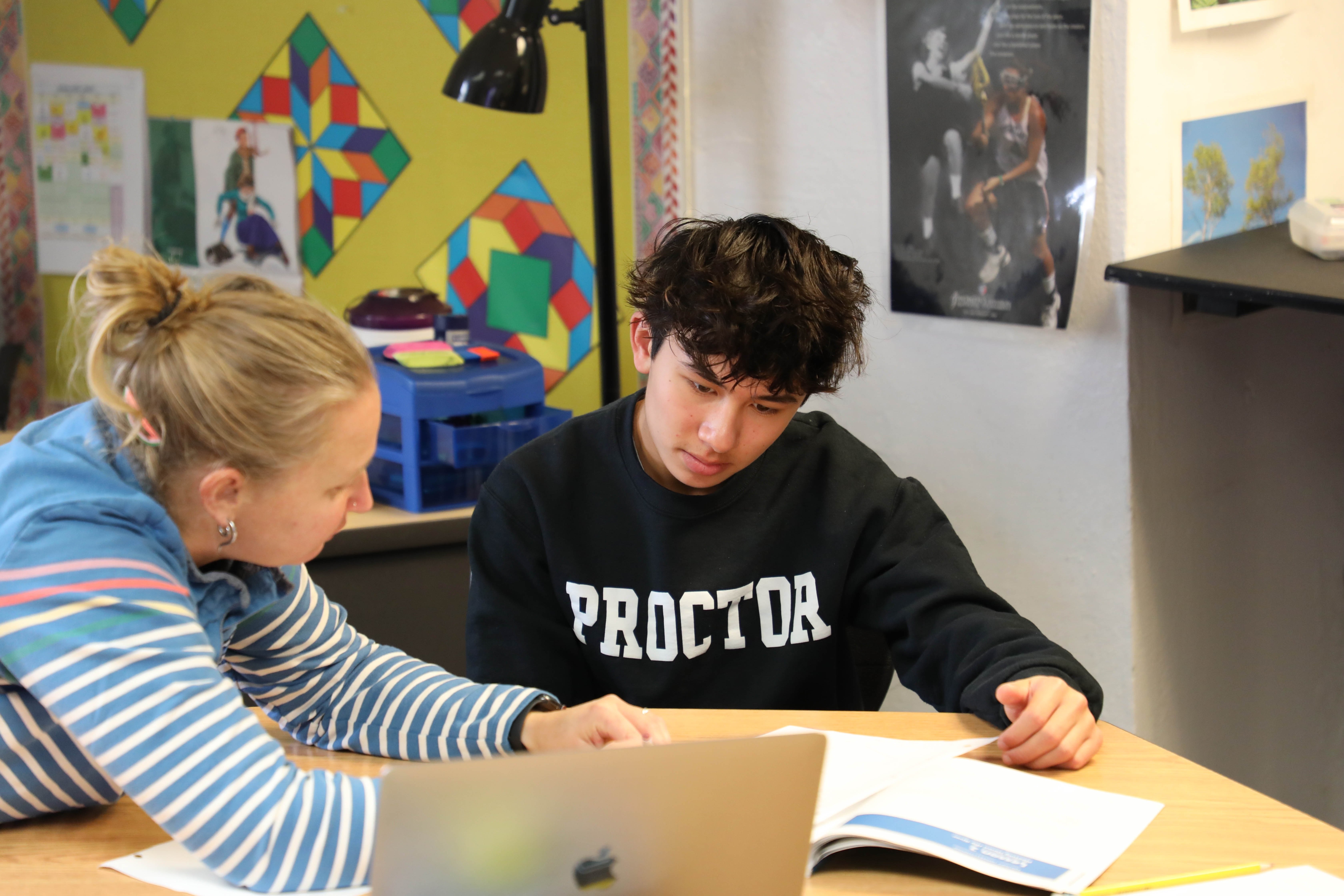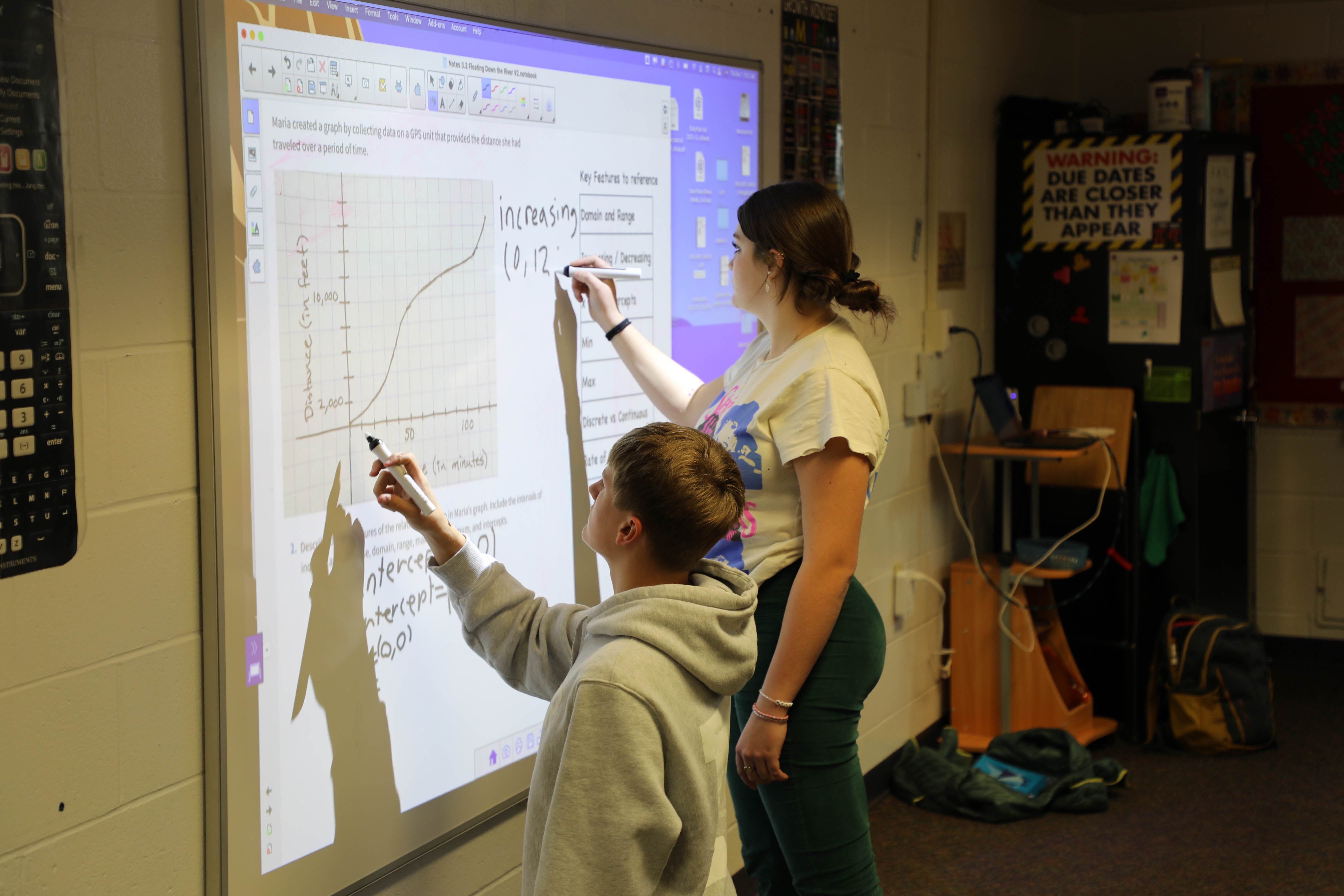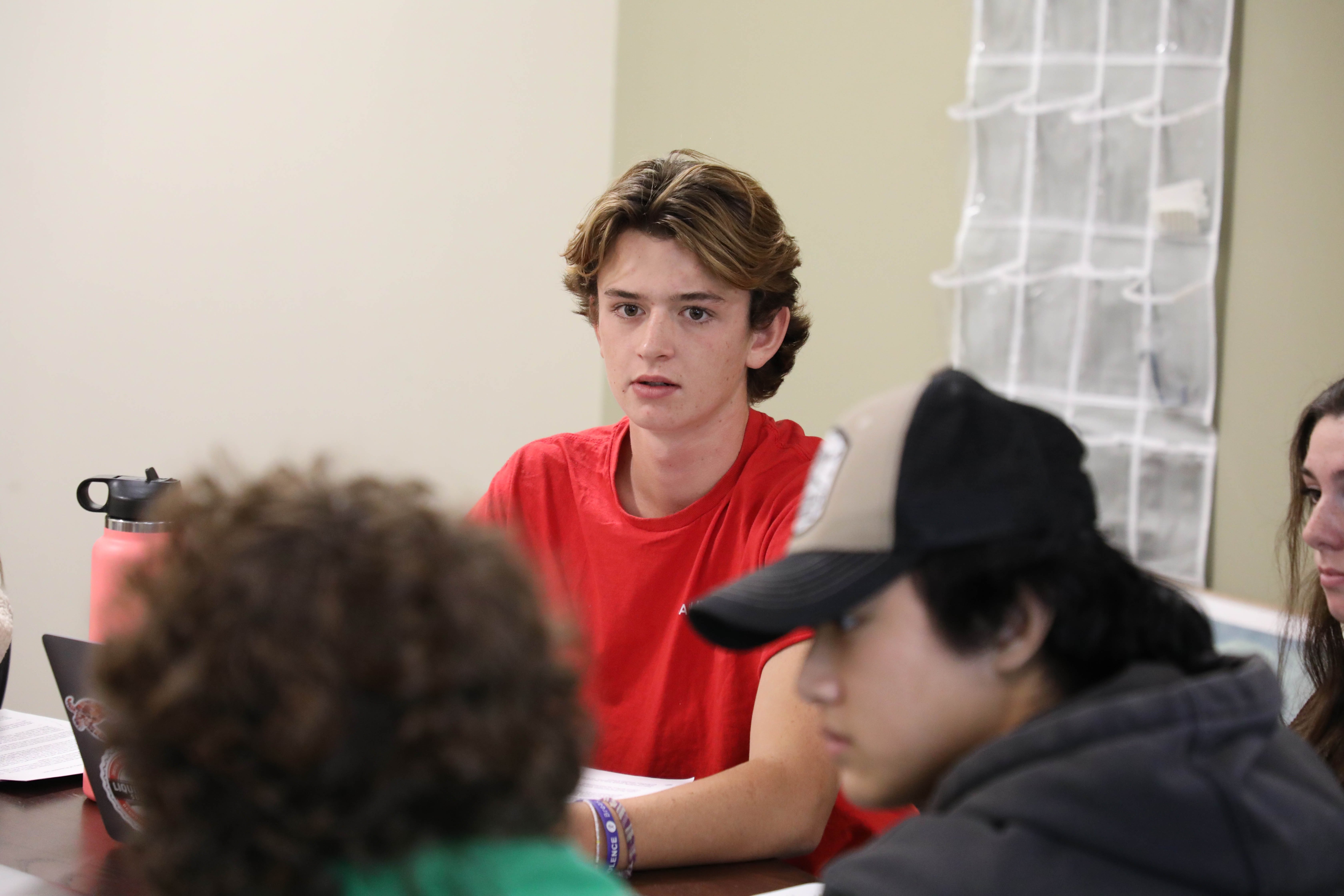An underlying theme of our work as teachers this year has been engagement. How can we best engage our students and engage ourselves in the Proctor community. This engagement comes in many forms - in classrooms, on teams, in dorms, and in advisories - but central to helping students feel connected and invested in community is our willingness as adults to meet our students where they are, understanding the stressors and motivators in their lives.

On Monday, teaching faculty gathered in academic departments to discuss Proctor’s academic model and how a universal design for learning framework could help us continue to become better in our work. We asked ourselves the following questions:
- What does it look like when our students are deeply engaged?
- What are some of the challenges that get in the way of student engagement?
- How do we help sustain deep student engagement throughout the class, week, term, year?
- How do we provide students with opportunities to learn how they learn and self-regulate?
- When do we or don’t we, provide students with multiple pathways to access information?
- How are we applying that which we learned during S.E.A.L Foundation training earlier this fall?

Conversations centered around the notion of engagement and how we support and encourage students to become as engaged as possible in their learning. While honestly asking ourselves what gets in the way of student engagement. The insights shared below by our faculty provide a window into the real work of being a teacher. It is not always about the content or the lesson plan, but it IS always about the kids.

What does it look like when our students are deeply engaged?
- Demonstrating an interest beyond just doing work, asking questions, thinking, attending extra help.
- Asking thoughtful questions & willing to run down rabbit holes along side us.
- Willingness to sit with discomfort and develop resilience.
- Seeking support, self-awareness and self-advocacy.
- Willing to be vulnerable and take risks.
- Asking questions, seeking greater depth, independent thinking, knowledge creation and curiosity
- Seeing other students as sources of knowledge as opposed to just the teacher.
- Pushing back on our ideas as educators.
- Stepping into history (living history through simulations)
- One-on-one relationships and getting to know them as people.
- Communicating that you know what they need and where they are.
- Trust-building over time, those non-academic relationships.
- Understanding student learning profiles.
- Individuals having space and time to share in class.
- Processing and decompression.
- High expectations and accountability.
- Student centered learning with structured activities.
- Get their bodies doing the learning.
- Teacher’s enthusiasm and belief in students.
- Offer various ways to “play” with the material (discuss, model, see, do)
- Know your audience: we teach kids not our subject.
- Real world application.
- Essential for students to have this special place in their schedule to learn a skill that they feel proud of.
- Provide choice in showing mastery of materials.
- Peer accountability.

What are some of the challenges that get in the way of student engagement?
- Stress
- Exhaustion
- Confidence
- Health
- Dorm study hall environment.
- Day student travel time.
- Go-go-go nature of their schedules (daily and weekly).
- Homework load
- Technology
- Fear of looking foolish.
- Self-advocacy, self-awareness, self-confidence.
- Executive functioning.
- Streamlining our learning management software.
- The pressure to do it all.
- Personal lives (Mental health issues, family, romantic).
- Laptop usage (Email, organize Google Docs, Foundation skills, calendars).
- Lack of sleep
- Social Media use
- Peer Culture
- Family Pressure
- Competitiveness vs. Collaboration
- Insecurity/Anxiety
- Fixed mindset
- Noise - virtual and physical - that is omnipresent in their lives.

Our mission as a school, and as individual educators, is to help our population of young people find meaning, purpose, and passion in their lives. Monday’s professional development workshop allowed us to think critically about this work as we head into the winter trimester alongside our students.








